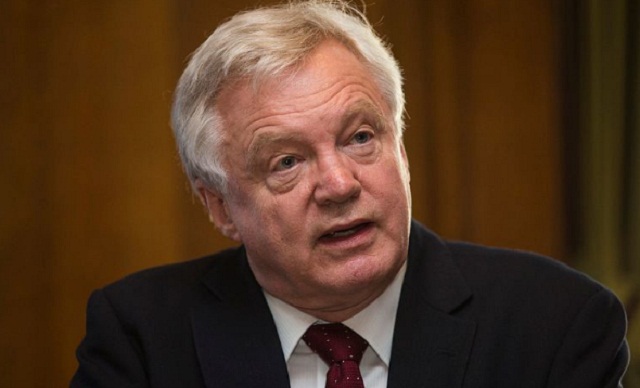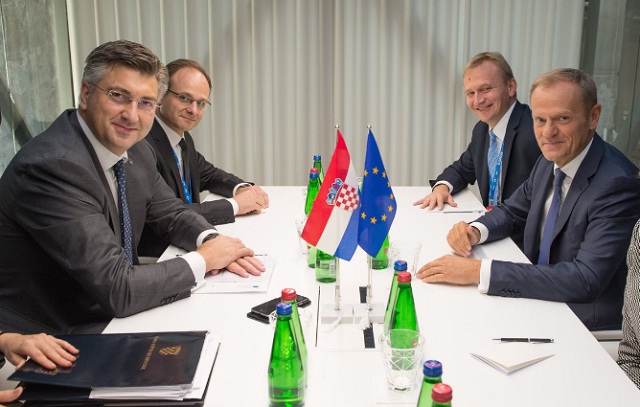
London, United Kingdom | AFP | A senior British minister on Thursday accused the European Union of acting in bad faith over a plan to sanction London if it breaks the rules of the post-Brexit transition period.
“What we’re about is building an implementation period, which is to build a bridge to a future where we work well together,” said Brexit minister David Davis.
“And I do not think it was in good faith to publish a document with frankly discourteous language, and actually implying that they could arbitrarily terminate, in effect, the implementation period.
“That’s not what the aim of this exercise is, it’s not in good faith, and we think it’s unwise to publish that.”
Britain and the EU began talks this week on plans for a two-year transition period after Brexit, during which London must follow all EU laws without having any decision-making powers, in exchange for frictionless access to the single market.
A draft EU agreement published on Wednesday calls for the ability to sanction Britain in cases in which it would take too long to refer any breach of those rules to the EU’s top court.
That could include reimposing tariffs or customs checks, both of which Britain is supposed to be free of as a member of the EU internal market during the transition to December 2020.
“I thought that document was hardly a legal document, it was a political document,” Davis said in London.
Pro-Brexit British lawmakers were quick to jump on the plans, saying it would be “utterly perverse” of the EU to impose tariffs on British goods when the two economies are so closely aligned.
The government initially gave a muted response, saying only that it was a draft document that reflected the EU’s stated directives.

Davis’ quotes suggest real anger at the plans in London, where Prime Minister Theresa May’s government is battling criticism from all sides over her Brexit strategy.
Both London and Brussels hope to wrap up the transition talks by the end of March, to allow time to negotiate the key elements of future trading ties before Britain leaves the EU in March 2019.
May and her top ministers held a committee meeting over two days on Wednesday and Thursday in a bid to thrash out their substantial differences over the future relationship with Brussels.
Davis said the atmosphere was “very constructive, a lot of things resolved”, while adding: “There’s still progress to be made.”
He said the framework of what Britain wanted had already been set out: “that is an overarching free trade agreement and large numbers of components of what we want to achieve within that, a customs agreement and so on, and we were fleshing that out”.
 The Independent Uganda: You get the Truth we Pay the Price
The Independent Uganda: You get the Truth we Pay the Price





